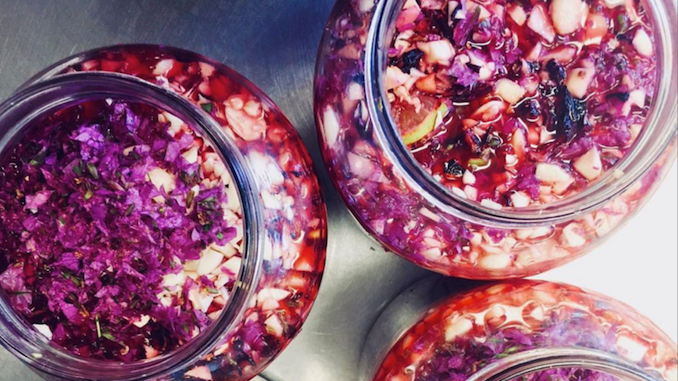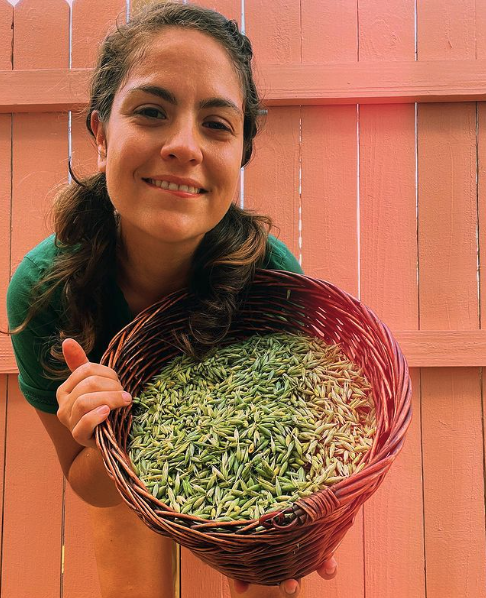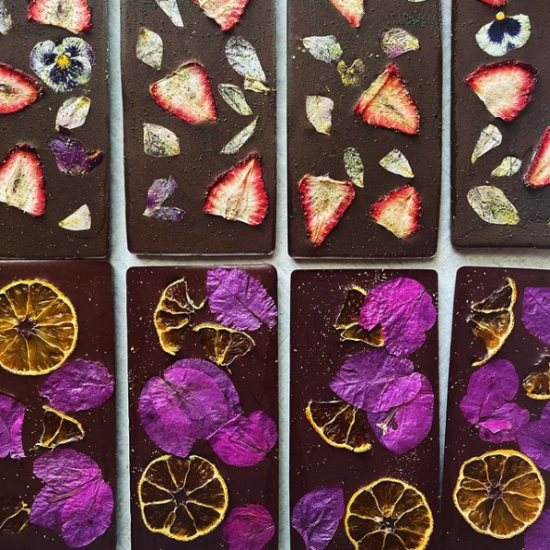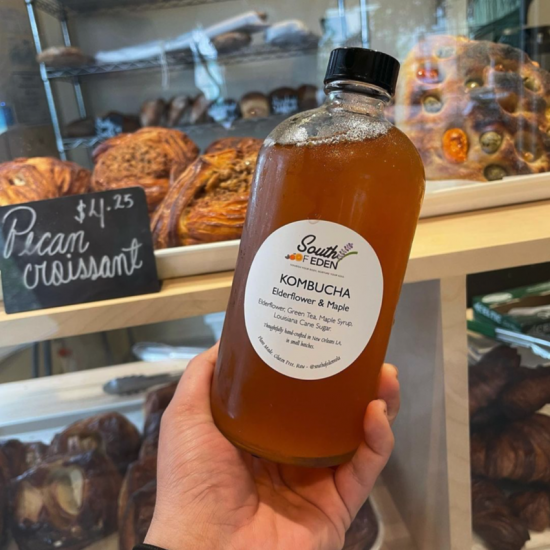
We talk to the proprietor of New Orleans’ South of Eden about herbal medicine and more.
BY CHRIS RYAN
BARISTA MAGAZINE ONLINE
In the December 2021 + January 2022 issue of Barista Magazine, we explore the world of tea through the article “Strong Tea,” which looks at how coffee retailers can boost profits with a well-run tea program.
One of the professionals sharing their knowledge in the article is Liliana Ruiz-Healy, an herbalist and recipe developer who owns the business South of Eden in New Orleans. Liliana is well-versed in the world of nutrition, and uses homegrown and locally sourced herbs to make healing creations for her customers.
We talked to Liliana about the power of flowers, running South of Eden—which is currently operating online while searching for a new brick-and-mortar location—and much more.

Chris Ryan: How did you get interested in herbalism and nutrition, and how did you learn more about it and hone your craft?
Liliana Ruiz-Healy: I got interested in it for many reasons. I’m from Mexico City, and it’s a practice that’s very normal in households (by tradition and in a very folky way), and herbs are easy to find down there.
Once I moved to the States, I noticed the lack of abundance of these herbs and started connecting more with them. It was also through my own healing journey after dealing with many health issues that Western medicine was not tackling. I decided to learn about nutrition and herbalism and went back to school. I continue to educate myself, and it also starts becoming intuitive after a while, kind of like working with coffee.

How did South of Eden get started?
It originally started as a Mexican food and plant-based pop-up, and slowly became a brick-and-mortar. That’s when I needed to learn about coffee as well—coffee is such a wonderful herb with so many properties as well that can taste delicious! Back then there was a coffee shop in NOLA called Solo Espresso, and Lauren Morlock—the owner and my coffee mentor—trained me. After that, my practice with herbalism, food, and coffee became more about the extraction of flavors and medicine. It opened under a different name with a partnership, but that came to an end last year and now I’m currently looking for a brick-and-mortar, while I am focusing on ferments and herbalism wholesale, and catering.
What are some of the other products South of Eden offers? Who are your customers, and how is the business different from your competitors?
What’s unique, at least in New Orleans, is that South of Eden offers herbalism and nutrition, crafted with seasonal and local ingredients. The business celebrates the beauty of flowers and other botanicals I personally grow in a garden, and is inspired by my Mexican culture.
Another thing that was important was to offer healthy and quality food, as well as tea that was not pulled from a bag, but blends made in-house. Our teas not only taste good but at times have medicinal purposes, and we take care with the dose and brew time to get the best cup. And of course, coffee—we’ve used beans from Onyx Coffee Lab, Panther Coffee, Bandit Coffee Co., Pretty Coffee Roasting, Ruby Coffee Roasters, and others.
My customers tend to be people who care about health, quality, and unique, pretty crafts. At the same time, most everything we offer is gluten-free, which in New Orleans is still a market with few well-executed and/or healthy options.

So it sounds like tea is pretty central to the herbalism work you do?
Very! Some herbs offer their medicine better in water and provide more nutrients. I get excited when I walk into cafés and see original and unique tea blends that are as thoughtfully brewed as their coffee. South of Eden also makes a lot of kombucha, which is fermented tea, and it’s also carefully made with botanicals with good medicinal ratios.

